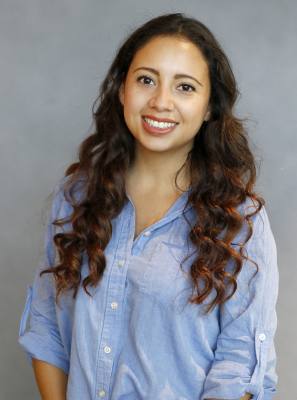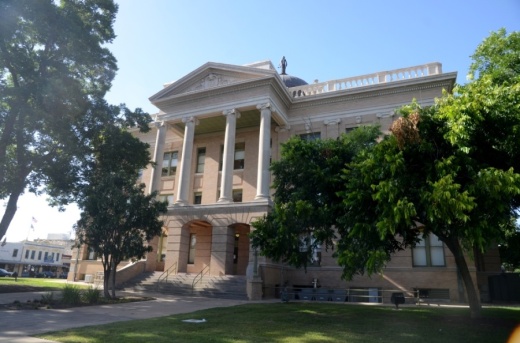As vaccine distribution information changes rapidly, below is as of Feb. 25.
What is a hub?
A hub is a centralized location that is registered with the state to receive large quantities of COVID-19 vaccine doses. The hubs would then determine how to distribute the vaccines.
When hubs were first set up, Williamson County was to receive vaccines through the Austin Pubic Health-Travis County hub. However, Gravell said he found Travis County was not willing to share vaccines because it too was limited.
He has previously said he does not blame Travis County for taking care of their residents first but knew that he needed another plan, which is why the county decided to partner with FHS.
“We are not a subset of Travis County. We are Williamson County,” Gravell said. “We have over 600,000 residents. We've had over 380 residents die from COVID this last year, and we are not going to be delegated as some second rate community here in America.”
Which hubs are in Williamson County?
As of Feb. 25, FHS and Curative have been named hubs by the state. Williamson County itself is not a hub; it is only helping in the operations, Covey said.
“The county is not the hub. No doses come to the county. We have only jumped in to help because we want it to work well,” Covey said.
FHS first became a hub Jan. 18. Williamson County partnered with FHS to provide technical help and secure vaccine locations. Gravell said the county decided to partner with FHS on vaccine distribution after a successful partnership for widespread, free COVID-19 testing.
At first, the Sun City ballroom was a designated a vaccine location because of its previous success in flu vaccine distribution and its close proximity to a large vulnerable population. A vaccine distribution hub was also set up at the Kelly Reeves Athletic Center in North Austin.
Once the county was able to secure a higher number of doses, it no longer distributed vaccines at Sun City and instead moved to the Georgetown ISD Athletic Complex.
Gravell said this move was made because it became apparent that drive-thru operations were more efficient at getting shots in arms.
Until Feb. 15, FHS was the only state-recognized hub and was operating both at Kelly Reeves and GISD. Gravell said this operation lasted longer than planned as the county was trying to also get Curative on the state-recognized hub list.
A delay at the state level and the Texas winter storm pushed Curative’s start date to Feb. 22 even though the county commissioners approved a contract with Curative on Jan. 26.
Gravell said the current plan is to have Curative operate in the north of the county, FHS operate in the west of the county and open a third location at Dell Diamond in Round Rock to operate in central Williamson County when it can secure more vaccines.
What happened to local providers?
When vaccines first became available in December, the Texas Department of State Health Services told counties to register local doctor’s offices, hospitals and clinics to receive vaccines. Gravell said the county did as they were told and compiled a list of at least 133 registered distributors.
At this time, individuals who qualified were receiving notifications from their providers to get on a waitlist managed by that provider. This is what was done with FHS.
Then, about two weeks later, the DSHS decided to move to a hub system no longer providing to vaccines to local doctor’s offices and clinics, Gravell said. The lack of supply and ease of distribution was the reason for this change, state officials have said.
What about hospitals?
When vaccines were first distributed, hospitals received doses for their staff and were not intended to be distributors to the public.
Gravell said after having discussions with area hospital leaders to host vaccine sites with doses the county curated, it was determined bringing large numbers of the public into area hospitals would not be safe for patients.
However, the county is now working with Baylor Scott & White to become a hub so it can receive more doses, Gravell said.
Why is Williamson County not receiving more vaccines?
All vaccine allotments are determined by the DSHS, which receives its allotments from the U.S. Department of Health and Human Services.
Local officials have also acknowledged frustrations with the slow process of distributing vaccines but said they are only able to distribute what they receive. Gravell said he makes weekly requests for the maximum number of vaccines, but he is not the ultimate decision maker.
“I've fought hard for Williamson County to get vaccines here, and I can't tell you when we're going to be able to speed up and vaccinate more. I can only say that we're asking every week [for more vaccines],” Gravell said.
Currently, FHS has been receiving about 6,000 doses a week, while Curative received 2,000 in its first week Feb. 23. Gravell said at this rate and with the number of Phase 1B-qualifying residents in Williamson County, the county will not get through vaccinating all Phase 1B residents until June.
What is happening with the waitlist?
Because FHS was first a vaccine provider on its own in December, it created its own waitlist. That waitlist was to only be for FHS patients who qualified and would be using FHS vaccines provided by the state.
Issues occurred when FHS found many people were sharing the waitlist login code with other members of the community who did not qualify, Covey said. This overwhelmed the system and is the reason why the list grew to more than 180,000 people. This has since been fixed, she said.
Williamson County has also taken over all waitlists for FHS and Curative and formed a single list. Gravell said the lists have been compiled via timestamp to ensure fairness.
When an appointment slot is available, individuals will receive an email telling them when and where to go. They will also need to fill out documentation. If an individual needs help filling out documents, they can go to a Vaccine Registration Technical Assistance site.
Locations and times are:
- Beginning Feb. 22: Hill Country Bible Church, 3300 Little Elm Trail, Gym Building, Cedar Park; Mondays, Wednesdays and Fridays from 9 a.m. to 3 p.m.
- Beginning Feb 23: First Baptist Taylor, 2500 Mallard Lane, Taylor; Tuesdays and Thursdays from 9 a.m. to 3 p.m.
- Beginning Feb. 24: The Oaks in Sun City, 301 Del Webb Blvd., Georgetown; Wednesdays, Thursdays and Fridays, 9 a.m. to 3 p.m.
Currently only those in phases 1A and 1B should be registering for a vaccine appointment.
Phase 1A includes firefighters who engage in 911 emergency services such as prehospital care, last responders who provide mortuary or death services to decedents with COVID-19, and school nurses who provide health care to students and teachers.
Phase 1B includes people age 65 and older and people age 16 and older with at least one chronic medical condition that puts them at increased risk for severe illness from the virus that causes COVID-19.
While the county is not legally able to verify that individuals qualify under phases 1A and 1B due to Health Insurance Portability and Accountability Act laws, officials said they hope only people who qualify will take a vaccine.
How can I get other questions answered?
Williamson County has set up a call center for COVID-19-related questions. These are operated by volunteer county employees who are also doing their own job while taking calls, Covey said.
The county previously only had 10 people answering the hotline, which led to automated responses as a busy tone. County Public Affair Manager Connie Odom said the county has since added more help, but if the call is not answered by a person, individuals should wait and call back, as each phone call can take several minutes to complete.
The county’s call center can be reached at 512-943-1600.





